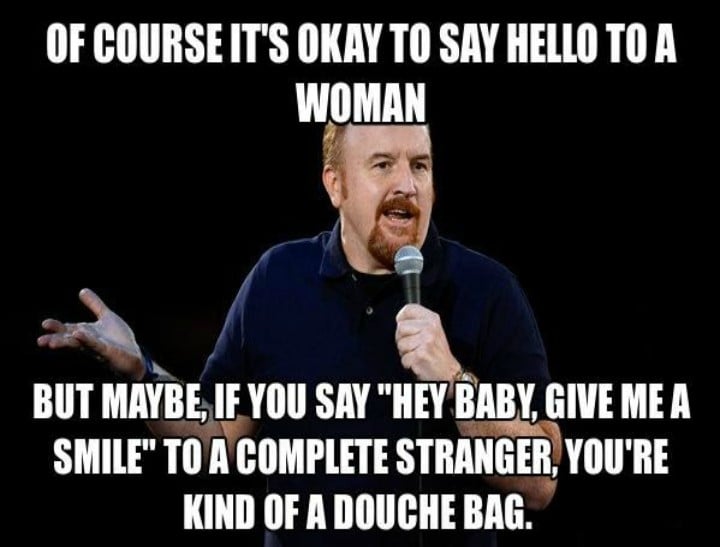
Is “thank you” an appropriate reaction to a catcall? What about one like this?
I often recall fondly the time a man yelled something unabashedly racist and sexist at me as I sauntered down the street.
It happened a good nine years ago, when I was still in college. But to this day, the words feel fresh.
“Damn… You built like a black girl.”
My sheepishness was palpable as I giggled and responded, “Why thank you.“
As someone who’s grappled with body image issues, the words were particularly powerful. Maybe, I thought, I’m not fat — but curvy. Maybe my big ass is actually hot. I knew his words were steeped in dehumanising racist stereotyping and sexual objectification, but in that moment, I simply felt desirable. And that felt good.
Let me acknowledge here that, of course, as a cisgender white woman, my experiences with street harassment are much less fraught and violent than they are for other populations of women, like trans women or women of color. I also know I’ve been very fortunate in that the harassment I’ve personally experienced has rarely had threatening undertones.
It wasn’t the only time I’ve been flattered by street harassment — I’ve even happily obliged men who’ve asked me that most offensive of questions: Can you smile, pretty girl? — and it might not even be the last. Indeed, my affinity for catcalls has yet to dim, even as I’ve become more committed to women’s rights issues and more inundated in stories about harassment.
When I watched that viral smash video of a woman being catcalled 108 times in a day, my first thought wasn’t, How terrible and sexist! But wow, she must be really pretty; there’s no way I’d get catcalled that often in a day.





























































































